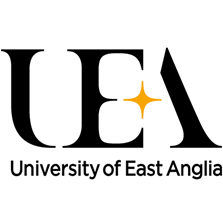
The practicalities of delivering a multi-institutional online workshop
Lessons from planning and delivering a multi-institutional online workshop for university teachers designed to find solutions to common educational challenges
You may also like
Popular resources
Academic staff teaching bioscience subjects have identified changing educational backgrounds among students entering degree courses at the University of East Anglia. To assess if this was unique to our own institution or part of a wider trend, we facilitated a discussion with colleagues teaching these disciplines across UK higher education.
In late 2021, we secured funding from Heads of University Biosciences (HUBS) to host an online workshop: “Fundamental biosciences: what foundations do students need for success in their study of biosciences?”
We wished to reflect on topics relevant to the QAA Subject Benchmark Statement for Biosciences, which will be updated in 2023, while reviewing what wider support can help students transition into higher education.
Here, we discuss the process followed and the lessons learned from the planning and delivery of this teaching-focused workshop.
Workshop planning and structure
Having secured funding, we established an organising committee for the event, consisting of five colleagues from the University of East Anglia (UEA), which was the host institution. This helped streamline operations during planning and on the day of the event.
The workshop was planned around three distinct but related themes, shown in the table below, with each having one speaker from UEA and two speakers from other institutions to provide a rich variety of insights and perspectives.
Speakers were selected following submission of short abstracts about their proposed talks via a form used to record registration for the event. Each speaker spoke for about 10 minutes, with time set aside for discussion after each talk. To enable attendance by colleagues from as many institutions as possible, the workshop was run virtually using Microsoft Teams and recorded, allowing all registered attendees to access it later.
| Workshop themes | Associated THE Campus resources |
|---|---|
| Theme 1 - Threshold concepts at Level 4: can we define an optimal core set of skills and knowledge required for all bioscience students at Level 4? | Creating a bioscience toolkit for first year students, by Chinedu Agwu at the University of Hertfordshire; Helping students see biology within a broader context, by Mark Coleman of the University of East Anglia; Threshold concepts: what they are and how they help students learn, by Becky Lewis of the University of East Anglia. |
| Theme 2 - Diversity of learning at level 3: how can we ensure that all students are best prepared to achieve at Level 4 and beyond? | How to help students with widely varied prior education to thrive in first year, by Bethan Gulliver of the University of East Anglia |
| Theme 3 - Curriculum development and sequence in biosciences: facing “chicken and egg” challenges | Helping students tackle terminology barriers, by Sonja Dunbar at the University of Cambridge; Foundations to lay when teaching computational and data skills, by Philip Leftwich of the University of East Anglia; Curriculum design in biosciences: setting up first-year students for success, by Audrey Heppleston of the University of East Anglia. |
Pre-event resources
To spur the sharing of ideas and experiences across institutions, we set up two pages on Padlet, an online platform that allows learners to collaborate by sharing and commenting on text, images and other useful resources. Links to both Padlet pages were shared ahead of the event.
The first page provided an introduction to the workshop, its themes and speakers. It contained written thought pieces for each of the themes to set the context and provide pre-event insight.
The second page enabled workshop attendees to introduce themselves ahead of the event.
Attendees found the Padlet pages to be a useful resource. Feedback included: “Excellent set-up and resources with the Padlets in advance. Particularly like the ‘think pieces’ and the resources and links shared in advance and during the session.”
Discussion spaces
To facilitate live discussion, an online social space was made available during the breaks between talks, using Wonder. We intended this to be a place that enabled people to continue discussions around each theme, separate from talks hosted in Teams. It quickly became clear that people wanted a break from their screens during the scheduled breaks, to stretch their legs, make a drink or grab a snack, so these online social spaces were almost entirely unused.
Reflecting on this, we feel that to maximise the potential of such informal discussion spaces, they need to be scheduled into the workshop timetable in addition to breaks.
Lessons learned
Feedback was positive, with participants praising the event organisation, the range of speakers and institutions represented and quality of the talks. This type of virtual meeting offers good opportunities for academic staff to review and share good practice on the support and delivery of teaching.
There were requests to schedule more time for informal discussions and introductions to take place. We would build more “down time” away from the main presentations into any future events.
Creating an organising committee with responsibility for the event planning as well as for chairing the themed sessions and opening and closing the event proved highly effective. It meant everyone involved in the on-the-day delivery had been part of planning discussions and understood the event objectives.
Key takeaways for those planning their own multi-institutional event:
- To maximise participation and allow participants to attend from institutions across the UK (and beyond), run the event online.
- If discussion between participants is important for your event, schedule time for this in the event plan. Set aside as much time for discussion as for presentations.
- If informal networking is important, set aside specific time for this within the schedule, as well as breaks.
- Make use of social media channels such as Twitter and existing networks for promotion of the event and link this promotion to the sign-up form – this can be basic to set up – we used MS Forms to create ours.
- Send out calendar invitations to all who sign up and ensure you provide useful detail in the invitation about what to expect on the day. This way, potential attendees have a clearer idea of what the invitation is for when it pops up on their screens and are more likely to accept.
- Avoid sending out direct links to join the event until a day or two before the event. This acts as a reminder about the event and helps ensure that only genuine attendees join. This can be aided by using the function to admit attendees from outside the institution as guests, which is built into most virtual meeting programmes.
- Multi-institutional events can be an excellent way to share best practice of staff within your own institution. Make sure that you remember to invite, encourage and include attendees from your own institution.
- Ideally your audience will be diverse; you should ensure that your presenters are too. Make sure speakers at your event represent a range of institutions, career stages and backgrounds. The wording in your promotional material can be key to this. Make sure that it is friendly and engaging without being too serious because this can deter some potential speakers from putting themselves forward.
- Think about the outputs of your event from the early planning stages. Why are you organising this event? Who is the event targeting and what do you hope to get out of it? Can you increase the impact of the event by sharing the discussions and findings post-event, for example by writing for THE Campus or another journal, magazine or website that is appropriate to your subject?
- When the event is finished, send out thanks to all speakers and attendees and encourage opportunities for follow-on collaboration and discussion.
Kelly Edmunds is associate professor in biological sciences, and Richard Bowater is professor of biochemistry and molecular biology education, both at the University of East Anglia.
The advice is based on running the Heads of University Biosciences-funded workshop, “Fundamental Biosciences: what foundations do students need for success in their study of Biosciences?”, hosted by the University of East Anglia.
If you found this interesting and want advice and insight from academics and university staff delivered direct to your inbox each week, sign up for the THE Campus newsletter.




